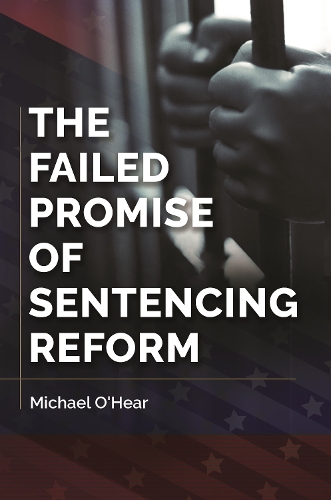
The Failed Promise of Sentencing Reform
(Paperback, NIPPOD)
Available Formats
Publishing Details
The Failed Promise of Sentencing Reform
By (Author) Michael O'Hear
Bloomsbury Publishing USA
Bloomsbury Publishing USA
22nd February 2024
NIPPOD
United States
Classifications
Tertiary Education
Non Fiction
Sentencing and punishment
Prison law
345.730772
Physical Properties
Paperback
296
Width 154mm, Height 232mm, Spine 18mm
440g
Description
Despite 15 years of reform efforts, the incarceration rate in the United States remains at an unprecedented high level. This book provides the first comprehensive survey of these reforms and explains why they have proven to be ineffective. After many decades of stability, the imprisonment rate in the United States quintupled between 1973 and 2003. Since then, nearly all states have adopted multiple reforms intended to reduce imprisonment, but the U.S. imprisonment rate has only decreased by a paltry two percent. Why are American sentencing reforms since 2000 been largely ineffective Are tough mandatory minimum sentences for nonviolent drug offenders the primary reason our prisons are always full This book offers a fascinating assessment of the wave of sentencing reforms adopted by dozens of states as well as changes at the federal level since 2000, identifying common themes among seemingly disparate changes in sentencing policy and highlighting recent reform efforts that have been more successful and may point the way forward for the nation as a whole. In The Failed Promise of Sentencing Reform, author Michael O'Hear exposes the myths that American prison sentencing reforms enacted in the 21st century have failed to have the expected effect because U.S. prisons are filled to capacity with nonviolent drug offenders as a result of the "war on drugs," and because of new laws that took away the discretion of judges and corrections officials. O'Hear then makes a convincing case for the real reason sentencing reforms have come up short: because they exclude violent and sexual offenders, and because they rely on the discretion of officials who still have every incentive to be highly risk-averse. He also highlights how overlooking the well-being of offenders and their families in our consideration of sentencing reform has undermined efforts to effect real change.
Reviews
This is a tour de force account of the swirling factors that account for both the dramatic increase in prison populations in the United States in the 197090s and the modest decreases since 2000. . . . Summing Up: Recommended. Upper-division undergraduates through faculty. * Choice *
Author Bio
Michael O'Hear is a professor of law at Marquette University Law School.
